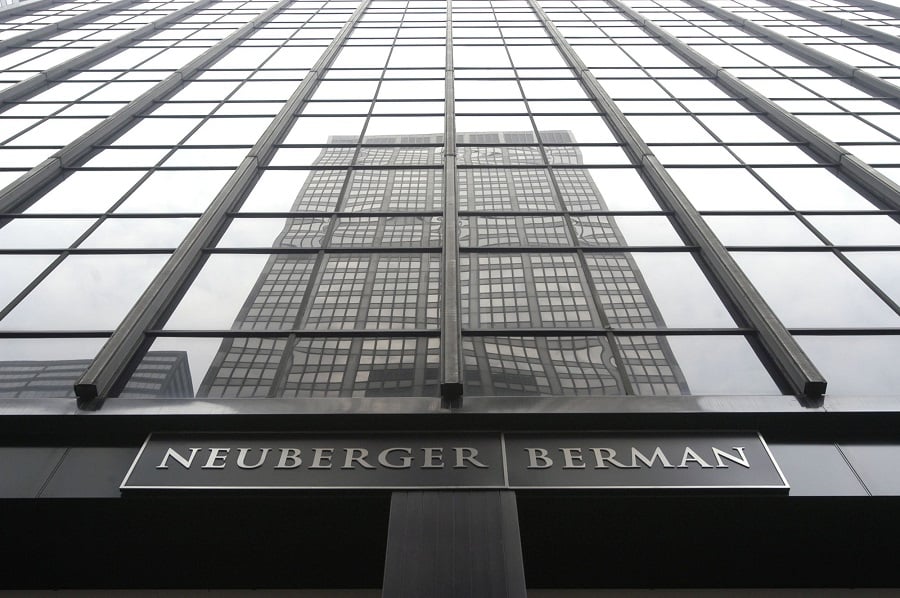Neuberger Berman, an investment manager with $246 billion in assets under management, has been sued by a participant in the company's 401(k) plan for alleged self-dealing, whereby the firm offered a high-fee, poorly performing proprietary fund in the plan for its own profit.
The lawsuit,
Bekker v. Neuberger Berman Group LLC et al, claims an actively managed collective investment trust fund managed by a group within Neuberger was “larded with high fees and has suffered from consistently abysmal performance,” costing the plan more than $130 million over a six-year period.
The decision to keep the fund — the Value Equity Fund — in the plan and Neuberger's “handsome” profit, in the tens of millions of dollars, from the arrangement constitute a fiduciary breach under the Employee Retirement Income Security Act of 1974, according to the complaint, filed Aug. 2 in the U.S. District Court for the Southern District of New York.
Arthur Bekker, a participant in the plan from June 2010 to the present, the relevant time period, brought suit on behalf of other plan participants. The plaintiff is seeking class-action status.
“Neuberger appreciates that anyone can bring suit for any reason,” Neuberger spokesman Alexander Samuelson said. “The firm is proud of its 401(k) program and its 15% contribution rate to employees. We look forward to fighting the allegations on the merits.”
The lawsuit fits with the broad theme of employees of financial services companies suing over proprietary investments in their 401(k) plans, according to Duane Thompson, senior policy analyst at fi360 Inc., a fiduciary consulting firm.
Several have been targeted just within the past two months. Employees
sued Franklin Templeton Investments in July, and New York Life Insurance Co. and American Century Investments
in June.
ACTIVE V. PASSIVE
The Value Equity Fund holds approximately half the assets in the Neuberger 401(k) plan — around $445 million of a total $830 million. The plan has around 2,800 active participants, according to
data from BrightScope Inc.
Neuberger manages eight of the plan's 29 investment options, including the Value Equity Fund, according to the complaint.
That fund has an expense ratio of 80 basis points, which plaintiffs claim is 40 times higher than comparable large cap funds, such as S&P 500 index funds offered by Vanguard Group and State Street Global Advisors that charge 2 basis points.
Further, the fund has “dramatically underperformed” the S&P 500 index — it had a 4.7% annualized return for the five years ending June 30, 2016, while the S&P 500 returned 12.1%, according to the complaint.
The central question of the lawsuit seems to hinge on whether this active fund should be benchmarked against a passive index in the context of whether it's an imprudent investment option, according to Mr. Thompson.
“Is this a question of unfairly comparing apples and oranges? That's something the courts will have to decide,” he said.
Mr. Samuelson, the Neuberger spokesman, said the argument that active and passive fees should be identical is “nonsensical.”
Mark Boyko, an attorney at Bailey Glasser, the law firm representing plaintiffs, said it's appropriate to compare a fund to some investable benchmark.
“The point of the fund is to outperform its benchmark, and its benchmark is the S&P 500 index,” Mr. Boyko said.
A court's ultimate determination in the case will be facts-and-circumstances based, Mr. Thompson said. For example, did the plan have an investment policy statement and did the plan's investment committee followed its guidelines?
Aside from the Neuberger suit, Bailey Glasser has headed up lawsuits concerning other financial service-company 401(k) plans, including those of Franklin Templeton and TIAA, which was filed in October 2015.
Companies such as Massachusetts Mutual Life Insurance Co., Transamerica Corp., Ameriprise Financial Inc. and Fidelity Investments
have settled similar lawsuits in multimillion-dollar payouts.
Courts declined to dismiss similar lawsuits against Putnam Investments and BB&T Corp. this past spring, signaling some of these cases will continue moving forward, Mr. Thompson said.







